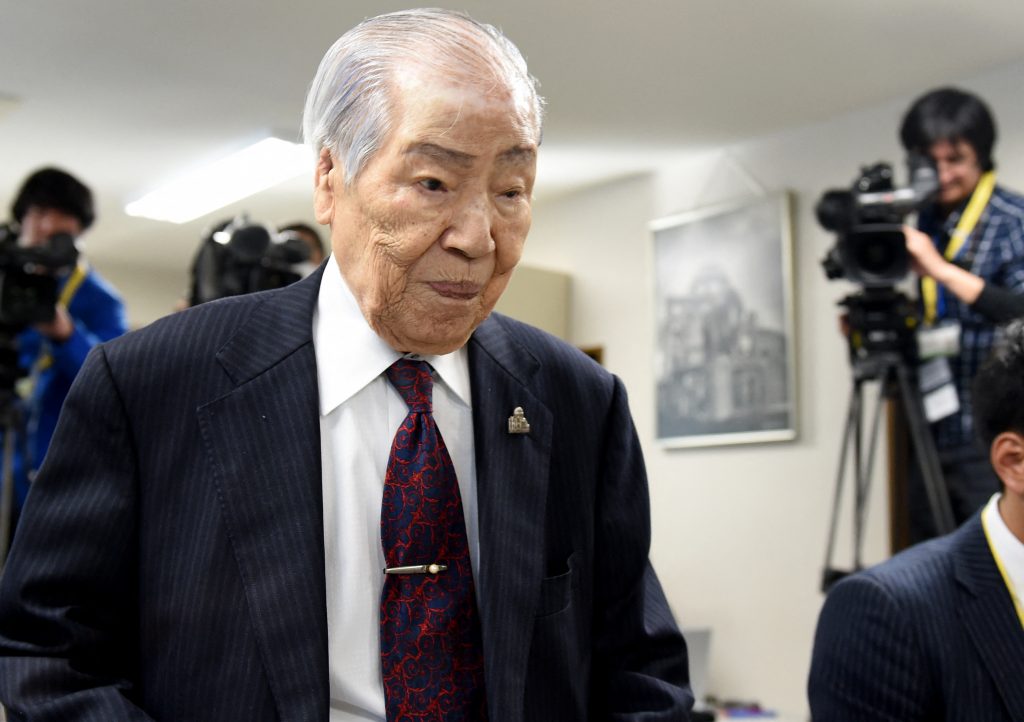
- ARAB NEWS
- 12 Jul 2025

HIROSHIMA: Sunao Tsuboi, leader of a Japanese group of hibakusha atomic bomb survivors who spearheaded antinuclear campaigns in Japan and abroad, died of anemia-caused arrhythmia at a hospital in the western city of Hiroshima on Sunday. He was 96.
Tsuboi survived the U.S. atomic bombing of Hiroshima on Aug. 6, 1945, in the closing days of World War II at the age of 20 while studying at a technical school. He was exposed to radiation on the street about 1.2 kilometers from the epicenter.
He suffered full-body burns and remained unconscious when the war ended on Aug. 15, 1945. Although he miraculously survived, he later developed bowel and prostate cancers and severe anemia.
After the war, Tsuboi worked as a junior high school teacher, occasionally taking leaves of absence due to his health condition. His students remember him fondly for telling them about his experiences of the bombing.
After retirement, the bombing survivor became involved in antinuclear campaigns. In 2000, he became co-chairman of the Japan Confederation of A- and H-Bomb Sufferers Organizations, or Nihon Hidankyo.
In August 2009, Tsuboi signed a pact with then Prime Minister Taro Aso, leading to the establishment of a fund to aid all plaintiffs in a lawsuit over government recognition for atomic bomb diseases in December that year.
He met with then U.S. President Barack Obama as a hibakusha representative in Hiroshima in May 2016, when Obama became the first sitting U.S. president to visit the atomic-bombed city. Tsuboi called on Obama to “work together to achieve a world without nuclear weapons” and shook hands.
Tsuboi traveled overseas more than 20 times as an advocate for nuclear disarmament, and is remembered for often using the phrase “never give up.”
“We can’t allow war, atomic weapons, terrorism and murder. Life is important, regardless of ethnicity and race,” he had said.
JIJI Press